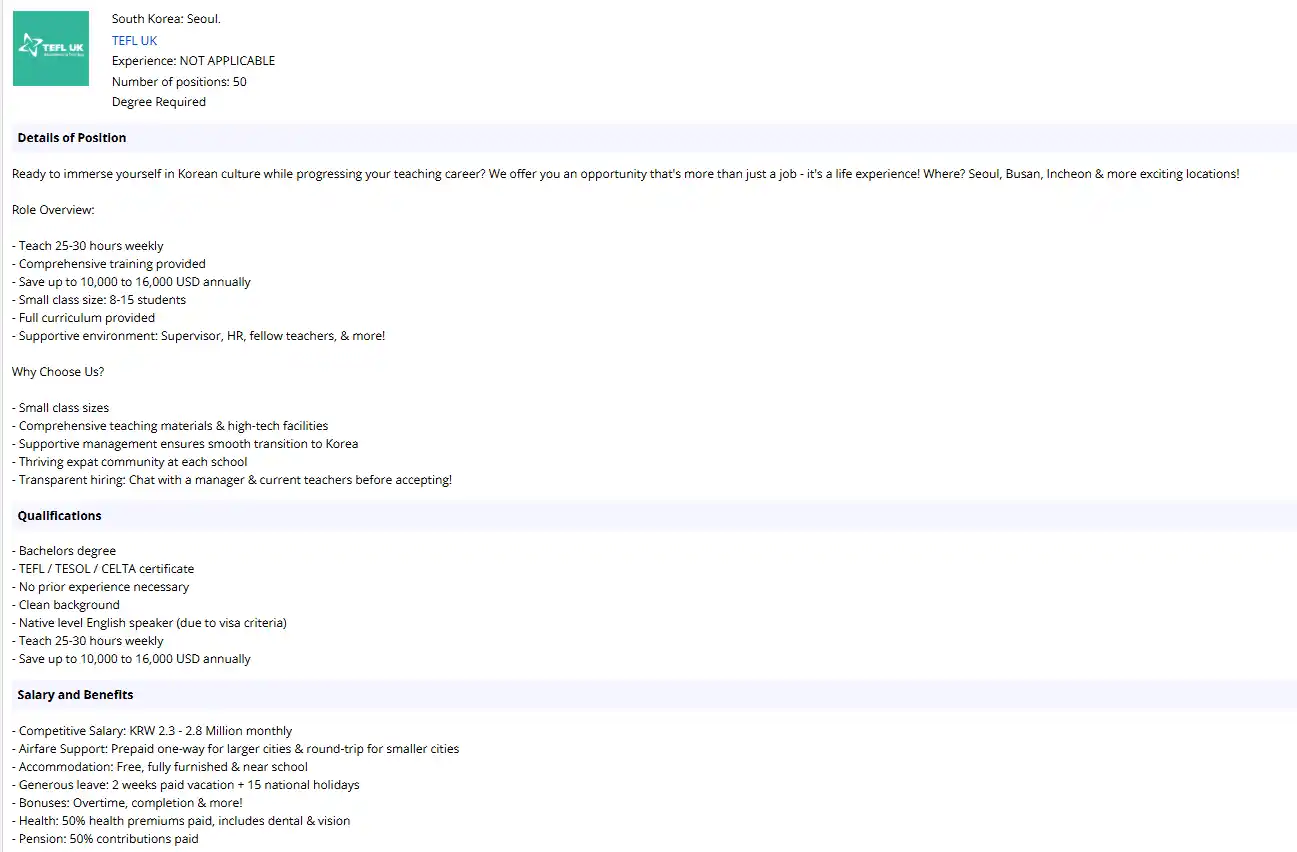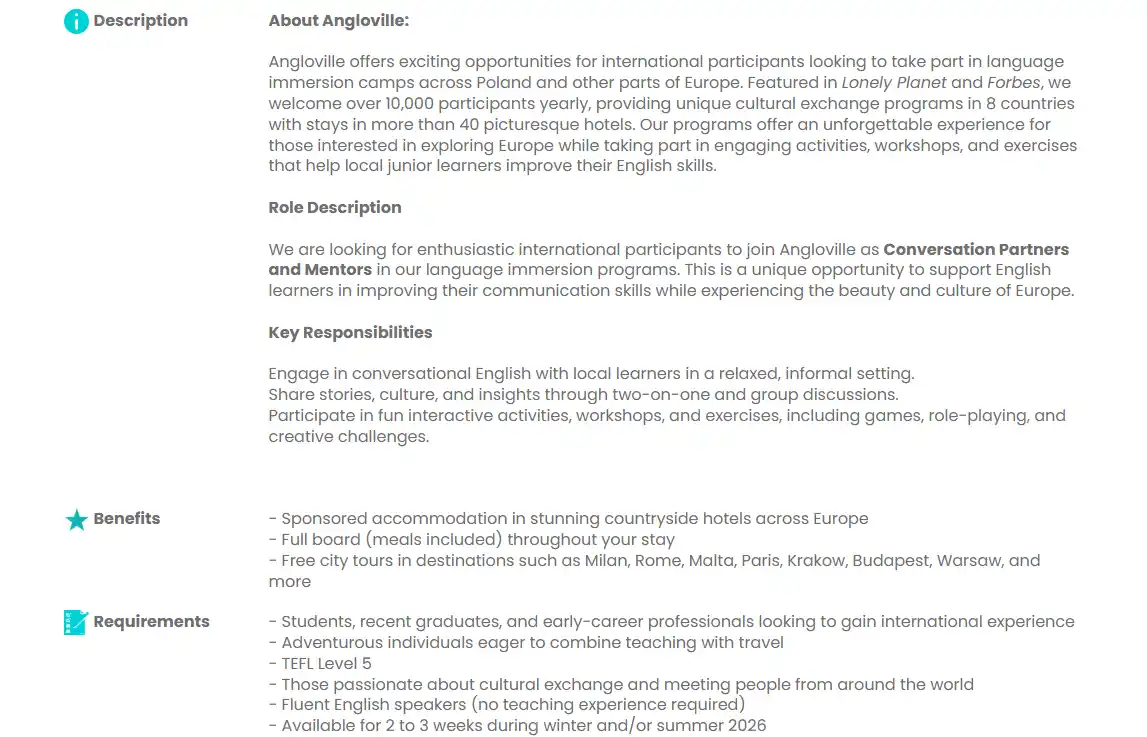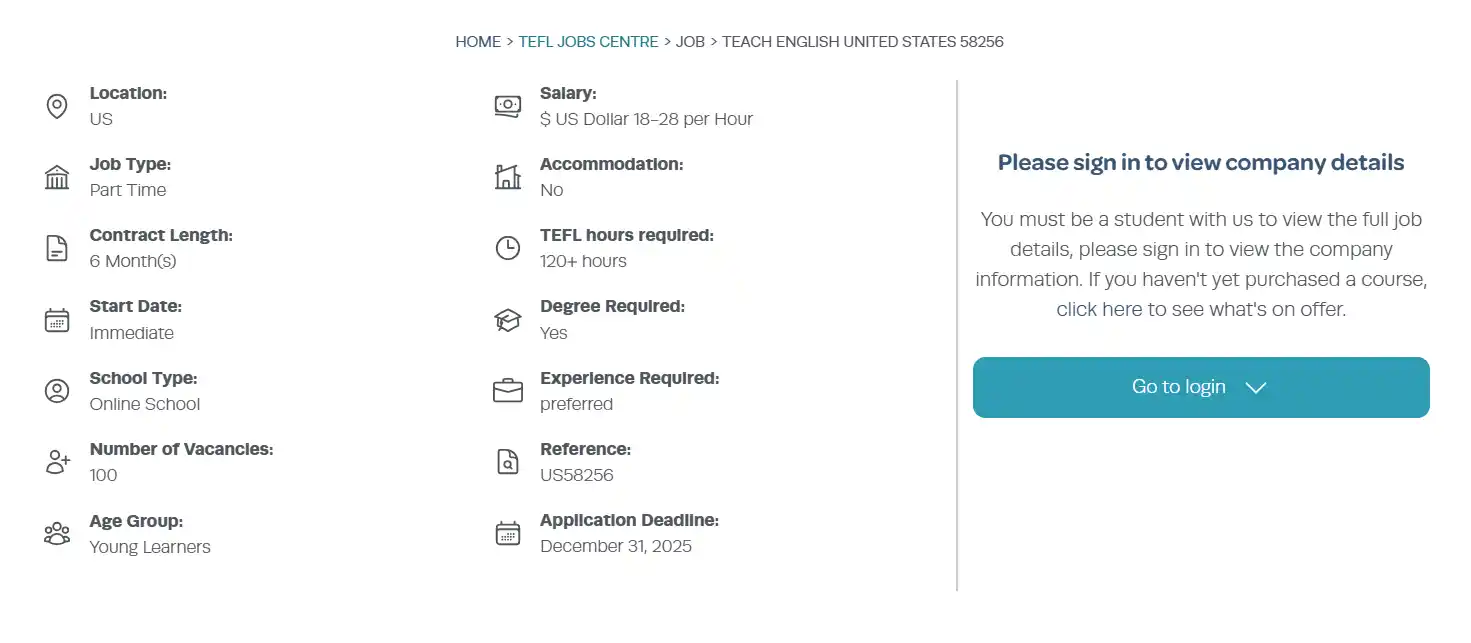If someone had told me at 19 that teaching English would take me across the world, fund my travels, and even help me build my own business later in life—I would’ve laughed. Me? A teacher?
But that’s exactly what happened. I got paid to teach English both online and abroad, and it completely changed my life.
And the best part? You don’t need to be a grammar expert, a professional teacher, or even a native English speaker with a degree to do it. You just need the right training, a bit of dedication, and the willingness to put yourself out there.
Let me share how it all started.
Where It Began
Like many people fresh out of school, I didn’t know exactly what I wanted to do. I flirted with the idea of teaching, then science, then business.
But one thing was clear: I wanted freedom. I didn’t want to get stuck in a job that didn’t light me up.
One day, I heard about someone who had taken a Teaching English as a Foreign Language (TEFL) course and ended up teaching in Spain. That spark lit something inside me.
Soon after, I enrolled in a 120-hour TEFL course—and it ended up setting the direction for my whole career.
First Stop: Spain
At 19, I boarded a plane to northern Spain for my first ever teaching job. It was the summer of my first year of University. I was nervous, excited, and honestly a little clueless.
But the school supported me; I had lovely accommodation with my own room, fully paid for by the school. Meals were provided once the summer school commenced.
With my TEFL certificate in hand, I was teaching real students within a week. I quickly learned that you don’t need years of training to get started—you just need to be a step ahead of your students.
That summer in Spain gave me two things:
- A paycheck that I could take home to fund my university expenses
- The realization that I could do this anywhere
My first solo trip to Spain (spot the teacher!):


Going Online
When I came home, I didn’t want the adventure to stop. That’s when I discovered the world of online English teaching.
At the time, online platforms were booming, and I joined companies like Acadsoc and Dada. I was earning decent money—sometimes even paid while just waiting on standby.
I could work from my bedroom, set my own hours, and still see my regular students grow more confident every week.
It felt surreal. I wasn’t stuck in a 9-to-5. I was in charge.
Teaching from my makeshift home studio:


Who Is This For?
Looking back, I realize how versatile this path really is. Teaching English online or abroad works for so many people:
- College students: You can finance your studies and gain international experience at the same time.
- Gap year students: Not sure what to do after school or between jobs? A TEFL certificate gives you the perfect “bridge year” where you can spend a year teaching abroad, earning an income, and deciding what you want next.
- Travelers/digital nomads: Teaching abroad gives you a ticket to see the world while making money.
- Parents or anyone needing extra income: Online classes or hosting students at your home are flexible options. You can teach while the kids nap or after bedtime.
Whether you want a full-time career or just a side hustle, there are so many ways to make TEFL work for you.
What You Actually Need
Here’s the good news: you don’t need a teaching degree. What you do need is a TEFL certificate—ideally a Level-5 accredited one (that’s what most good jobs require).
I went with The TEFL Academy because:
- It’s affordable compared to CELTA or Trinity TESOL
- It’s internationally recognized (I used mine in Spain, online, and later in the UK)
- It includes job support, tutor feedback, and even free specialist courses like teaching kids or teaching online
With my TEFL certificate, doors just kept opening. Jobs abroad, online teaching gigs, private students—it all flowed from that one decision.
Thinking of starting TEFL? I’ve teamed up with The TEFL Academy to offer a discount to my readers. Use code CAITRIONA for 10% off your TEFL course.
Explore courses & get 10% offNot sponsored. I may receive a small commission if you sign up — at no extra cost to you.
How You Can Actually Use Your TEFL Certificate
Many people complete the TEFL course while working their full-time job and only then start to ask the question: “Okay, I got the certificate… but what can I actually do with it?”
The truth is, it depends on where you are in life. Here are a few examples:
- College Student in the US
→ You could teach English online from your dorm room to students abroad. Some companies hire part-time and let you work evenings or weekends. I literally paid my way through parts of college this way. - Mom Looking for Flexible Work
→ Online teaching is amazing if you need something you can do during nap time or after bedtime. Many jobs let you set your own schedule. Some tutors only do 5–10 hours a week for extra grocery or “fun money.” - Recent Graduate
→ Want to travel before settling down? Your TEFL certificate qualifies you to teach abroad. Spain, South Korea, Vietnam, and Thailand are just a few places where schools hire teachers every single year (and often provide housing, flight reimbursements and insurance). - Career Changer / Remote Worker
→ TEFL opens several paths; you can move into a stable overseas post (often with fewer teaching hours than jobs back home), transition to a salaried role at an international school or university or build a remote freelance roster.
Real Examples of Jobs You’ll See Every Day
I’m from Ireland, which is infamously known as the second most expensive country in the European Union. On paper, teaching salaries abroad might look lower than what you’d earn at home.
But here’s the thing: when you factor in free accommodation, paid transport, meals, and other perks, you can actually save far more while living comfortably.
In Ireland, most of your paycheck disappears on rent, food, and bills. Abroad, schools often cover those costs for you. That means your teaching salary goes directly into your pocket for travel, savings, or even starting a business later. Saving $1,000 or more per month is not unheard of, if you are serious about it!
I saved almost my entire paycheck because I didn’t have to pay for anything at the summer schools, except my flights.
To show you this isn’t just hype, here are a few ads I’ve spotted recently. I see these kinds of posts all the time:

Here’s a radically different yet interesting opportunity that allows you to explore Europe completely for free, with all expenses included, while helping junior learners improve their English.

Online Teaching Reality Check
Online teaching is a brilliant side hustle, but it’s not always reliable as a sole income as lots of platforms treat you as an independent contractor, so your hours can ebb and flow.
There are plenty of gigs and you can build a roster of private students, but if you want to go full-time like I did, aim for a mix: try to find a role with guaranteed-hours, and split the rest of your time between 1–2 reputable platforms or private lessons so your schedule actually fills.

TEFL Jobs by Type: Which Countries Match Your Goals
There are jobs for everyone depending on what you want — here are some places that commonly match different goals:
- Full-time packages (housing, airfare, good benefits): South Korea, China, Japan (ALT programs), Gulf states (UAE/Qatar) — great if you want stability and the chance to save.
- European/Aussie-style roles (assistantships, easier for EU citizens): Spain, Portugal, Italy — perfect for gap years, teaching assistants, and those who want easy travel around Europe.
- Casual & short-term work (conversation classes, tutoring, summer camps): Taiwan, Hong Kong, Thailand, Vietnam — flexible, often well paid hourly, ideal for travellers or semester breaks.
- Seasonal / programmes for recent grads and gap years: Spain (assistant programs), South Korea (short-term academies/summer schools), Thailand (summer camps).
- Online / location-independent: Teach from anywhere to students worldwide — great if you want to keep your home base but earn extra income (or travel slowly while teaching).
- Higher-paying specialist roles (experienced teachers): International schools and corporate training roles in larger cities across the Middle East, China, and Hong Kong.
Where It Took Me
Since that first summer in Spain, teaching English has taken me to:
- The UK (where I spent another summer teaching and making memories)
- Thailand and Vietnam (where I combined travel with teaching before shifting into digital marketing full-time)
And online? I had 40+ regular students at one point, teaching them from my laptop while working from home.
It gave me a steady income, travel opportunities, and the confidence to eventually start my own online business.

Is It Worth It?
Yes, it is worth it, but only if you’re willing to put the work in.
Teaching English abroad or online isn’t some “get rich quick” scheme. You’ll need to study for your TEFL certificate, complete assignments, and put in the effort to find your first job.
But once you do, the rewards are incredible:
- A career that can take you anywhere
- A way to finance college or extra family expenses
- Flexible hours that you control
- The chance to meet amazing people from around the world
For me, it was the first step to the life I live now—working online, running my own sites, and still traveling when I want.
Quick Wins You’ll Get With a TEFL Certificate:
- Start earning online in as little as 1–2 months
- Access to job boards with daily postings
- Work from anywhere (dorm, kitchen table, beach café in Spain)
- TEFL Academy graduates are teaching in 100+ countries
Why I chose The TEFL Academy (and why I still recommend it):
- Government-regulated Level-5 accreditation (same level as CELTA/Trinity, but way cheaper)
- Flexible — study online at your own pace, with tutor support
- Free specialist add-on course (Teaching Online, Business English, or Young Learners)
Over 200,000 graduates (myself included) are now teaching online or abroad thanks to this exact course.
Which TEFL Course to Choose
I completed a 120-hour TEFL course in 2016 and that was common back then. Since I started, the industry has shifted towards Level-5 courses, which are longer and more rigorous, and have become the standard for better-paid roles.
I still wouldn’t change my experience for anything, but if you’re starting now and want the widest range of job options, aim for a Level-5 accredited course.
I recommend a Level-5 accredited course if you want the best job options. Use code CAITRIONA at checkout for a 10% discount.
Explore The TEFL Academy & get 10% offNot sponsored — I may receive a small commission if you sign up using my link, at no extra cost to you.
Final Thoughts
TEFL gave me a passport, a paycheck, and a heck of a lot of stories. It’s not effortless, but it’s honest work that buys you options — travel, savings, and time to figure out your career path. If that sounds good, you should probably try it.
Caitriona Maria is an education writer and founder of TPR Teaching, crafting inspiring pieces that promote the importance of developing new skills. For 7 years, she has been committed to providing students with the best learning opportunities possible, both domestically and abroad. Dedicated to unlocking students' potential, Caitriona has taught English in several countries and continues to explore new cultures through her travels.

